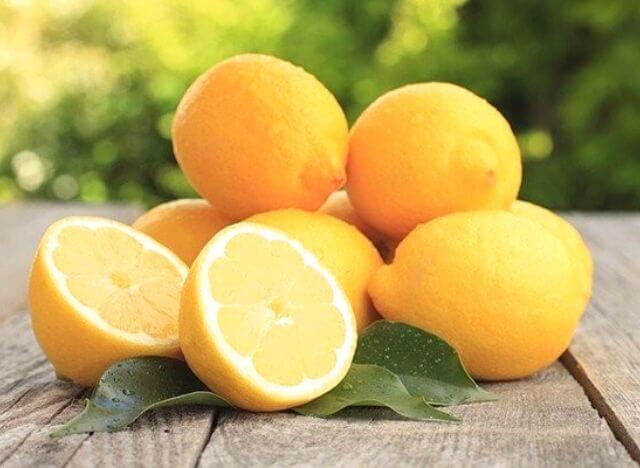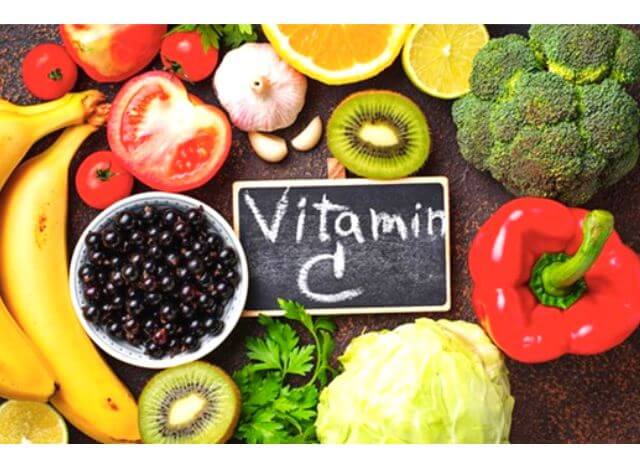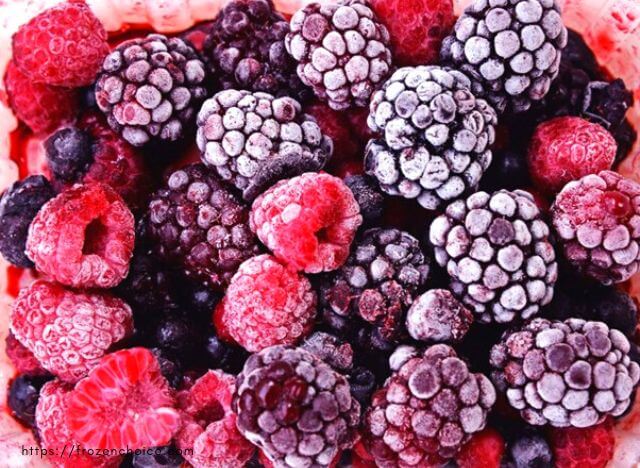Vitamin C is a vital nutrient known for its antioxidant properties and role in supporting a healthy immune system. It is commonly found in fruits and vegetables, but its stability can be affected by various factors, including freezing.
In this article, we will explore the impact of freezing on vitamin C and discuss effective methods to retain its nutritional value in frozen foods. Let’s see “Does Freezing Destroy Vitamin C?”
What is Vitamin C?
Ascorbic acid, also referred to as vitamin C, is a water-soluble vitamin that is crucial for numerous bodily processes. The body cannot produce this essential component, hence it must be obtained through food sources.
The antioxidant activity of vitamin C is one of its best-known traits. As an antioxidant, it defends cells against the harm caused by free radicals, which are produced by unstable molecules that can lead to oxidative stress and be a factor in a number of diseases. By scavenging free radicals, vitamin C promotes cell integrity and overall health.

Besides, vitamin C participates in collagen synthesis, which is necessary for the formation and maintenance of connective tissues such as skin, blood vessels, and bones. It also improves iron absorption from plant-based foods, which aids in the prevention of iron deficiency anemia.
Furthermore, vitamin C is essential for maintaining a healthy immune system. It promotes the development and activity of white blood cells, which are necessary for combating infections and enhancing immunological response.
Overall, vitamin C is a multifunctional nutrient that contributes to various aspects of human health. Including vitamin C-rich foods in the diet is important for overall well-being and ensuring proper immune function, collagen synthesis, and antioxidant protection.
Does Freezing Destroy Vitamin C?
Vitamin C, commonly referred to as ascorbic acid, is a water-soluble vitamin that is extremely sensitive to heat, light, and air. These elements can contribute to vitamin C breakdown over time. So, what happens to this vital mineral when vitamin C-containing foods are frozen?
Despite widespread assumptions, freezing does not degrade vitamin C. The freezing process involves rapidly lowering the temperature of the food, causing the water within the cells to freeze and create ice crystals. These ice crystals can cause cellular harm and disturb the food’s structure. However, freezing does not intrinsically destroy vitamin C.
While freezing doesn’t destroy vitamin C, it can result in some loss of this important component. The cycles of freezing and thawing can cause cellular damage, which can lead to vitamin C leakage via cell membranes and subsequent vitamin loss. Furthermore, vitamin C is susceptible to oxidation, which can occur when frozen goods are exposed to air and moisture during storage.

It is important to note that depending on the type of food, the amount of vitamin C it originally had, and the freezing and storage circumstances, the amount of vitamin C lost during freezing might vary. For instance, research has revealed that compared to fruits, veggies tend to lose more vitamin C after freezing. This might occur as a result of the increased levels of vitamin C found in many fruits or the distinctions in cellular composition between fruits and vegetables.
Further reading: What Are the Best Cheap Freezers for Home?
How to retain Vitamin C when freezing fruits
Proper measures can be used to reduce vitamin C loss during freezing.
Blanching is a common process that includes quickly immersing fruits and vegetables in boiling water or steam before freezing. Blanching promotes the inactivation of enzymes that play a role in nutritional breakdowns, such as vitamin C. A large amount of vitamin C can be maintained by blanching the food before freezing.
Furthermore, optimal storage practices are critical in retaining the vitamin C content of frozen foods. To avoid exposure to air and moisture, keep frozen fruits and vegetables in airtight containers or freezer bags. Because vitamin C is susceptible to oxidation, shielding the meal from these components can help prevent its breakdown. Maintaining the nutritious content of frozen foods requires storing them at consistently low temperatures, such as in a freezer set to the appropriate temperature.
To summarize, freezing does not destroy vitamin C, but it can cause some loss of this important ingredient due to cellular damage and oxidation. However, by blanching before freezing and utilizing suitable storage methods, a large amount of vitamin C can be kept in frozen foods.
It is important to consider the type of food, initial vitamin C content, and freezing and storage conditions when aiming to minimize vitamin C loss during the freezing process. By following these practices, individuals can still benefit from the immune-boosting and antioxidant properties of vitamin C when consuming frozen foods.
How to freeze fruits for the best flavor
To minimize color and flavor changes, follow these guidelines when freezing fruits.
- Freeze fruits as soon as possible after harvesting or buying from the store.
- Pre-treatment with vitamin C by blanching or other recommended pre-treatment options.
- Use high quality containers. Keep frozen fruit below 0 degrees F for up to 8-12 months.
- Unsweetened fruit degrades faster than fruit packed in sugar or sugar syrup.
Further reading: How to Choose the Best Small Upright Freezer
Freezing vegetables: Do you lose nutrients?
Conclusion
While freezing can lead to some loss of vitamin C, it is possible to retain a significant portion of this essential nutrient in frozen foods. By following proper techniques such as blanching, storing in airtight containers, and consuming within a reasonable timeframe, one can preserve the nutritional value of vitamin C in frozen fruits and vegetables.
Including these practices in freezing routines ensures that individuals can still benefit from the immune-boosting and antioxidant properties of vitamin C, even when consuming frozen foods.
FAQs
Is it true that freezing lemon juice destroys Vitamin C?
The only alternative that does not harm the nutrients, minerals, enzymes, or flavor of fresh juice is freezing. Raw cold-pressed juices must be maintained in the freezer after being frozen. By this way, they can be stored for up to six months without losing taste or value.
Does hot water destroy vitamin C in lemon?
Vitamin C is water-soluble and extremely heat-sensitive, so it is easily destroyed by heat or cooking. This is why you should never put lemon juice on food that is hot or cooking on fire. High temperatures, hot water and long cooking times can cause particularly severe vitamin C losses.
If you like lemonade, please note that drinking cold lemon water may interfere with the digestive benefits of the drink. While warm water has the ability to help extract vitamin C from lemons and improve digestion.
Therefore, to achieve maximum health benefits, lemon water at warm or room temperature is recommended.
What temperature causes vitamin C to be destroyed?
In accordance with a study published in the International Journal of Scientific and Technology Research, vitamin C starts denatured at temperatures that are as low as 86 °F. Heat has a considerable negative impact around 140 °F, and considerably more so at 170 °F.
In terms of skincare, is it true that water deactivates vitamin C?
Vitamin C (particularly L-ascorbic acid) is notoriously fragile, losing strength when exposed to light, air, and water. That’s why you should apply it to clean, dry skin immediately after washing. You should also let it dry completely before layering on other products, as this might possibly deactivate the vitamin C.
Reference
The Benefits of Vitamin C, webmd.com, Retrieved on June 7, 2023

